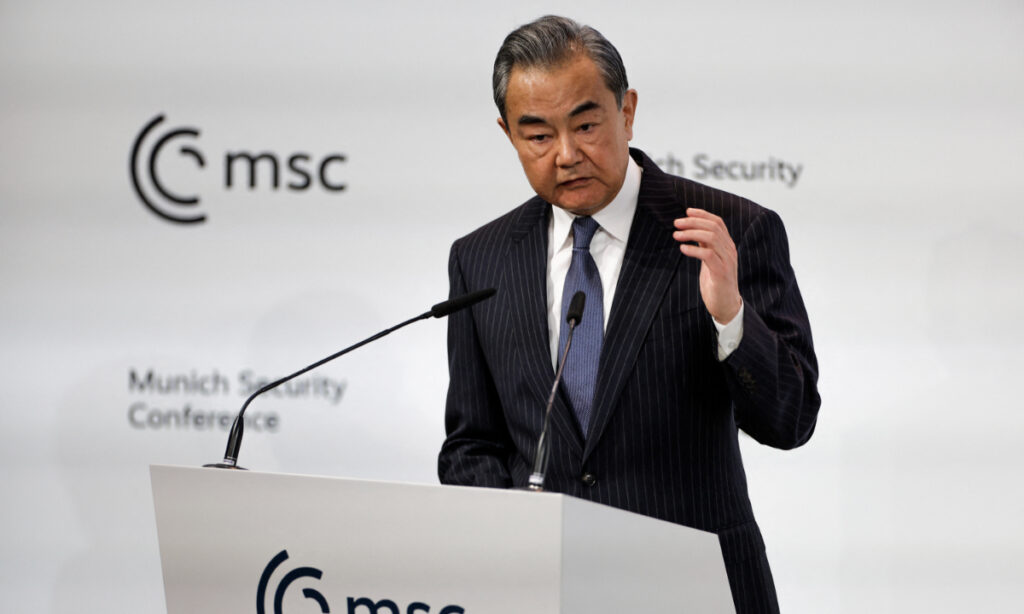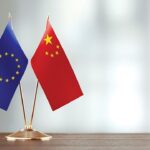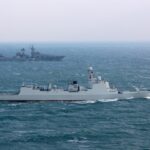The US’ handling of an astray Chinese airship was “hysterical, abused force” and apparently violated international norms and conventions, senior Chinese diplomat Wang Yi said on Saturday when taking questions at a session of the ongoing Munich Security Conference (MSC) in Germany.
On a trip to Europe, Wang, director of the Office of the Foreign Affairs Commission of the Communist Party of China (CPC) Central Committee, has visited France and Italy, and will depart for Hungary and Russia after attending the MSC.
Wang, a member of the Political Bureau of the CPC Central Committee, said the “balloon” was a civilian unmanned airship, which was blown into US airspace due to a strong westerly wind. We requested the US to handle it calmly, professionally through communication with China. “Regretfully, the US disregarded those facts, deployed advanced fighter jets and shot down a ‘balloon’ with missiles,” Wang said.
“Such action is absurd, hysterical and pure abuse of military force.” It is an apparent violation of international norms, in particular the principle of the Chicago Convention, or the Convention on International Civil Aviation.
China definitely cannot accept that, and lodged strong protests to the US.
There are numerous balloons floating around the Earth, belonging to different countries. Will the US shoot all of them down? Wang challenged.
The US action did not prove its strength, but achieved only the opposite, the senior diplomat stressed.
“We advise the US to stop doing such ridiculous things out of domestic political calculation. We also urge the US to show sincerity, correct its mistake, and face up to and address its damages to China-US relations,” Wang said.
In response to how such an isolated, unexpected incident could trigger such a farce, Wang attributed it to the US’ erroneous perception and strategic misjudgment of China.
China’s US policy is clear and transparent, that is mutual respect, peaceful coexistence and win-win cooperation. On the back of these principles, China is willing to work with the US to jointly explore how major powers of different systems can coexist with each other. However, the US response is China constitutes a severe “geopolitical challenge,” a “long-term competitor” and even a “threat.”
Built on an incorrect perception of China, the US is using all means to crack down on China and coerce other countries to follow suit, Wang continued.
The US claimed it is “competing with China.” China never fears competition, but it must be fair and rule-based. But what did the US do?
Wang cited the US’ CHIPS and Science Act, blasting it as pure protectionism, selfishness and unilateralism, which seriously breached the principle of free trade and the rules of the WTO.
It is an irony of history that the US stands opposed to the free trade it has long advocated… The US has torn apart its disguise in attempt to blatantly plunder, Wang said.
The modernization of China as a country of 1.4 billion population should be heralded as huge progress for mankind, why should the US seek to hinder it? Wang asked.
The senior Chinese diplomat said that China hopes the US will revert to a pragmatic China policy, and work with China to bring bilateral relations back on a normal track, which not only is in line with the interests of the two peoples but also meets the universal expectation of the international community.
During Wang’s earlier meeting with Pakistani Foreign Minister Bilawal Bhutto Zardari on the sidelines of the MSC, the senior Chinese diplomat also referenced the balloon crisis, saying that the event shows the US’ prejudice and ignorance of China has reached an absurd level.
In his speech, Wang also touched on the Russia-Ukraine conflict. He revealed that China will soon release a document detailing its stance on a political settlement of the Ukraine crisis.
China does not seek to fuel the crisis, or to profit from the crisis. It has always promoted peace talks, Wang said.
Peace talks were conducted in Belarus and Turkey… but those talks were suspended. We don’t know the reasons, but feel “some forces” did not want the talks to succeed, and did not want the war to stop soon. They cared nothing about the lives of the Ukrainians, or the mounting suffering of Europe. They appeared to have “strategic goal beyond Ukraine,” Wang noted.
(Global Times)




